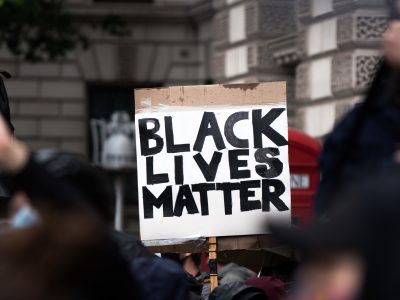Coronavirus isn’t just a medical issue

Mia’s noticed a rise in racism in response to the headlines about the virus
On New Year’s Eve, Chinese officials reported that an unknown virus had infected several citizens from Wuhan, capital of the Hubei province. It took no more than a week before they announced the identification of a new virus, named 2019-nCoV, or coronavirus. Since then, there have been reports of 77,150 infected people, and 2,592 deaths.
Airports and countries have tightened their security measures in order to prevent the spread of the disease, which is no more than a natural protocol. Yet we seem to be blowing this virus out of proportion, exaggerating its lethality and invoking unnecessary fear. While 2020 may be the year of the Rat, this outbreak is far from the Black Death.
The coronavirus actually belongs to a large family of viruses of under the same name. While SARS (Severe Acute Respiratory Syndrome) belongs to this species of virus, so does the common cold. Only 2% of those infected with the coronavirus have died, and the recovery rate is steadily rising according to the New York Times, showing that the virus is not the swift, merciless killer that it has been painted out to be.
But social media doesn’t agree. By giving a platform to so many worldwide, allowing the spread of opinions quicker than wildfires, an influx of heightened emotion has surged into online hysteria. Videos that could have been edited, photos that could have been through a spin in Photoshop, and facts that are just plain wrong have been accepted as truth. This is perhaps more dangerous than the virus itself, as it is giving rise to the racist targeting of Chinese people, or anyone who ‘looks’ even remotely Asian both online and offline.
Recently, a video of a Chinese online influencer eating a bowl of bat soup went viral. It was used as evidence that the coronavirus had spread due to Chinese savagery and their ‘disgusting’ meals. Yet this video was made more than three years ago in Palau, a Pacific island nation. Although animals that are deemed by the West to be wilder than beef and pork make frequent appearances in Chinese dishes, bushmeat can be purchased in Europe, America and other western countries. An estimate of 40 tons of bushmeat is flown into New Zealand each year, and more are on sale in markets from Los Angeles to London. This demand for exotic flavours is present not only in Asia, but in Europe as well, making racism that is based on the former’s eating habits hypocritical.
This lack of cultural understanding extends to even the smallest of differences, such as wearing facemasks. In Britain, a Chinese student was accosted by three strangers in Sheffield, just because she was wearing a facemask to protect herself and others from the coronavirus. Upon seeing her, three strangers blocked her way and demanded why she was wearing a facemask and if there was a problem. The student was scared speechless but was thankfully unhurt.
Unfortunately, the same cannot be said for another Chinese student in Berlin. She was physically assaulted by two girls who looked to be under the age of 20. The student had to endure the other girls’ humiliating insults as they harangued her, calling her ‘China virus’. This quickly escalated into an attack as the two spat on her, viciously pulling her hair and throwing the student to the ground, repeatedly kicking her in the head. It wasn’t until the two girls were pulled apart by passers-by did they run, and the student was escorted to the hospital via an ambulance.
While fear of the virus is understandable, xenophobia is not. Despite this seemingly basic concept, many make blatantly racist comments and disguise them as jokes. For example, a journalist in Toronto posted an image of him and his hairdresser, who was of Asian descent and wearing a mask, on Twitter with the caption: ‘Hopefully ALL I got today was a haircut.’ This tasteless joke assumed that his hairdresser had the coronavirus based on his race alone and resulted in the journalist losing his job.
Some may defend this comment on the grounds that it is merely ‘a joke.’ However, there is a clear distinction between dark humor and racism. While satirical humor is not for everyone, it is widely used as a coping mechanism for many to come to terms with awful events, and in this case, the coronavirus. My friends and I enjoy dark humor, so when I accidentally passed on a light cough to my friend at the start of the school term (no fear, both of us are fully recovered), she grinned and said, ‘I think you’ve given me the coronavirus.’ I chuckled at the joke, and both of us moved on. That, to me, is acceptable and simply humorous ‘banter,’ because it’s between friends. What’s not funny is how the students who repeatedly hurl the words ‘China virus’ at their Asian classmates and ostracise them become defensive and insist that it’s their classmates who don’t understand their sense of humor when called to take responsibility for their actions. It’s true that humor is subjective, but if you find something funny that someone else doesn’t and the other person explicitly tells you to stop, that’s a sign to cease targeting them.
Racism targeting East Asians in particular has gone overlooked for far too long. It’s not often that you see or hear about ideas that are discouraging xenophobia towards Asians, and this is partly due to our culture. We believe the racism that we deal with is not of anybody else’s concern. It’s second nature to keep such things within our community, but simply because we are relatively silent does not mean that we are not discriminated against.
Thankfully, it seems that the East Asian community is more prone to speaking up as of late. Alan Mak, the UK’s first British-Chinese MP, stated: “Discrimination and prejudice against the British-Chinese community, or any minority group, at any time is unacceptable. The British-Chinese community has nothing to do with the virus breaking out in Wuhan.” With influential figures talking about xenophobia, it sheds light on the pressing issue that usually goes ignored, educating the masses that fear is no reason to be racist.
But ridding the world of its racist precedent is no easy feat, and in order to make a safer, more caring environment for future generations, all of us must help. As cliché as this sounds, spreading awareness is the first step to stopping discrimination and violence. We need to change our attitude towards others, especially now that it’s 2020, the year in which so many before us believed that we would achieve a more equal, more peaceful world.
What do you think? Let us know on our Facebook, Instagram and Twitter.







